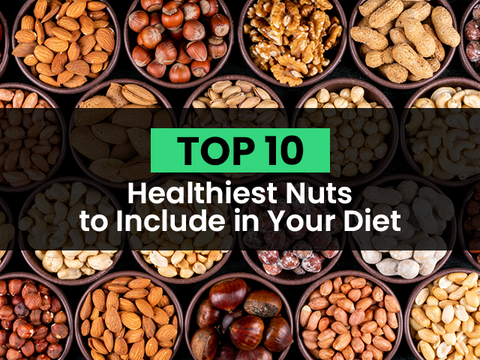
At a time when every sniffle and cough feels like an impending warning bell, it's only natural to want to fortify your immune system. The world may be full of fresh fruit recommendations, but dried fruit can be an essential ingredient for your immunity. Packed with nutrients and easy to store, these little flavor bombs might just be one of the best defenses nature has to offer. Let's talk about what dried fruits for health can actually do for your immunity and why these value-added fruits should be a priority in your diet.
Nutritional Benefits of Dried Fruits
When fresh fruits are dried, the volume is reduced but the nutrients are preserved, just in a concentrated parcel. Many beneficial compounds in fruits, such as vitamins, minerals, fiber and plant-based antioxidants remain intact and they work as a team to aid your body to resist infection. This is why a lot of experts designate the best dried fruits for immunity as a likely impact activity in a balanced diet. They can provide vitamin E, magnesium, selenium, healthy fats and even some plant protein to provide some backup to your immune response. And they last longer than fresh fruit so you have a year-round food product you can hang onto without worry.
Dried fruits also provide an energy boost thanks to their natural sugars, supporting a busy lifestyle. They help maintain healthy gut bacteria through their fiber content, which is also linked to a better immune response. There’s a reason cultures worldwide have used dried fruits for centuries to stay nourished and resilient.
Best Dried Fruits for Immunity
1. Almonds
Almonds offer a great source of calcium and vitamin E, two nutrients your body uses to stay resilient against infections. They’re known for helping manage cholesterol levels, which supports heart health and overall well-being. With their crunchy texture and subtle sweetness, almonds are easy to enjoy as a snack, tossed in salads, or ground into nut butter.
2. Walnuts
Rich in omega-3 fatty acids, walnuts do wonders for brain and heart health, and they’re especially handy for fighting inflammation. Their anti-inflammatory compounds make them valuable for keeping your immune system calm and ready for challenges. Walnuts have a slightly earthy taste that pairs well with both sweet and savory foods.
3. Pistachios
Pistachios pack potassium and protein while keeping calories in check, which is great for people who like to snack smart. That balance of nutrients helps fuel your energy without weighing you down, supporting an active lifestyle.
4. Macadamias
Macadamias hail from Australia and are a powerhouse of healthy fats that protect the body’s defenses. Their monounsaturated fat content supports good cholesterol and benefits immunity by giving your cells the tools to fight germs.
5. Cashews
Cashews bring a dose of magnesium and anti-inflammatory benefits that work together to keep your immune system balanced. Their creamy texture makes them easy to enjoy in both sweet and savory dishes, from stir-fries to desserts. Cashews also deliver healthy fats that nourish your cells and give you steady energy.
6. Hazelnuts
Hazelnuts come loaded with manganese and vitamin E, a combo that backs up your immune system while helping maintain strong bones. Their rich, nutty taste makes them a favorite in chocolates and spreads, but they’re also delicious on their own.
7. Pecans
Pecans carry antioxidants and help protect your heart by fighting harmful free radicals. Their rich, buttery taste makes healthy snacking a real pleasure, and they blend beautifully into salads or baked treats. Beyond flavor, pecans deliver minerals like zinc, which supports the immune system.
8. Brazil Nuts
These nuts stand out with their high selenium content, which is a trace mineral known for boosting immune function and defending against infections. Just one or two Brazil nuts a day covers your selenium needs, making them incredibly efficient for health support.
9. Pine Nuts
Pine nuts deliver iron, vitamin E, and a good shot of energy to keep your immune system alert. Their soft crunch and slightly buttery taste make them easy to sprinkle on salads, pasta or grain bowls. Iron supports healthy red blood cells, which carry oxygen through your body and help fuel your immune response.
10. Peanuts
Though technically a legume, peanuts are loaded with protein and healthy fats that help the immune system stay steady and strong. They’re affordable and easy to find and keep you feeling full while giving your immune system extra backup. Roasted peanuts make a satisfying snack on their own, or you can add them to curries and chutneys for extra texture.
How to Include Them in Your Diet
Including these dried fruits for health isn’t complicated. Sprinkle chopped almonds, walnuts or pistachios over your morning oats to start the day right. Throw a handful of cashews or pecans into your smoothie for a creamy twist. Trail mix with hazelnuts, peanuts, and pine nuts can be a perfect afternoon snack, especially on a busy workday.
Macadamias make a nice addition to baked goods if you want a hint of crunch, while Brazil nuts work great as a stand-alone bite because one or two deliver a solid selenium dose. Even salads can benefit from a nutty boost, especially with pistachios or pine nuts scattered over fresh greens.
Portion control helps you get the benefits without overdoing calories. About a small handful each day is more than enough. Store them in airtight containers to keep them crisp and tasty.
FAQs
1. Can I eat dried fruits every day?
Yes, you can. Just watch your portions, as dried fruits are calorie dense. A small handful is a healthy serving.
2. Are dried fruits healthier than fresh fruits?
They’re not necessarily healthier but are more concentrated in nutrients. Fresh fruits provide more water content, while dried fruits give you a nutrient-dense option.
3. What’s the best time to eat dried fruits?
Mornings and midday are great. Your body can use the energy boost, and you’ll feel full longer.
4. Can kids eat dried fruits?
Absolutely. Just make sure to chop them for younger children to avoid choking hazards.
5. Do dried fruits have added sugar?
Plain dried fruits do not, but some brands add sugar. Always check the label so you know what you’re buying.
Wrapping Up
There’s no mystery around why people call nuts and dried fruits nature’s immune-boosting gems. They store well, pack tons of nutrients into small bites, and work beautifully in both snacks and meals. From the vitamin E found in almonds to the selenium packed into Brazil nuts, you have plenty of options when choosing the best dried fruits and nuts to support your immune system. Your body will thank you for giving it the tools to stay strong.



